#Julia Penelope
Explore tagged Tumblr posts
Text
The English words related to tool follow the patriarchal dichotomy of sex-based task assignment: the inside of a house, the female realm, and the outside, male sphere of activity. Housework, tasks performed inside a house, are "women's work," while tasks performed outside are "men's work." This division of labor is meaningful to English speakers even though they may not be conscious of its existence. Men use tools, instruments (with the exception of a few musical instruments), implements, machines, and gizmos outside. Women use utensils, appliances, and gadgets inside. In English, we speak of kitchen utensils, kitchen appliances, and kitchen gadgets—used by women, they are not considered tools. A search of the tools listed in Roget's International Thesaurus (1977) reveals only a few items stereotypically used by women (tweezers, nail file, bread knife, scissors), but numerous names for equipment reserved to the male sphere specifying types of drill, clutch, saw, plane, hammer, and wrench. Recently, though, KitchenAid has begun to advertise one of its mixers as a POWER TOOL, a tactic that blurs the boundary between the two experiential domains. Its actual effect, however, reenforces the barrier. Because women are leaving their interior domain for the male domain of "real" work, the ad imports the [+ male] phrase, power tool, and applies it to the equipment women use in a kitchen. Nothing has to change but the label applied to the objects women use; our "domain" remains the kitchen.
Man, the anthropologists tell us, distinguishes himself from other animals by his use of tools. Any object restricted to male use and ownership is a "tool," whether it's language, a hammer, or a penis. Men speak of their penises as tools, and describe their activity in heterosexual intercourse as "screwing," "nailing," "banging," "reaming," "drilling," and "hammering." So intense is the male obsession with their "tools" and females as containers or holes they penetrate that any two objects suggestive of that description, for example, electrical outlets and plugs, nuts and bolts, will have the metaphor imposed upon them. The essential distinction of PUD [Patriarchal Universe of Discourse] is the one which identifies the FUCKER and the FUCKEE.
-Julia Penelope, Speaking Freely: Unlearning the Lies of the Fathers’ Tongues
109 notes
·
View notes
Text
Ready to defend Penelope Featherington from all of you haters:

#bridgerton#penelope featherington#colin bridgerton#polin#bridgertonedit#anthony bridgerton#eloise bridgerton#francesca bridgerton#benedict bridgerton#nicola coughlan#bridgerton season 3#bridgerton season three#penelope x colin#julia quinn#bridgerton books#meme#memes#funny memes#lady whistledown#queen charlotte#kate sharma#euphoria
9K notes
·
View notes
Text
Shonda Rhimes and Julia Quinn: Colin and Penelope have a glow-up this season and become super cool and confident flirts with loads of swagger
Luke and Nicola: Colin and Penelope are LOSERS and they live in LOSER-TOWN where all the NERDS hang out
#polin#bridgerton#idc idc#they lowkey get the characters more than Julia Quinn dont at me#bridgerton s3#nicola coughlan#luke newton#penelope featherington#colin bridgerton
5K notes
·
View notes
Text
I blame Bridgerton for unrealistic expectations of declarations of love...
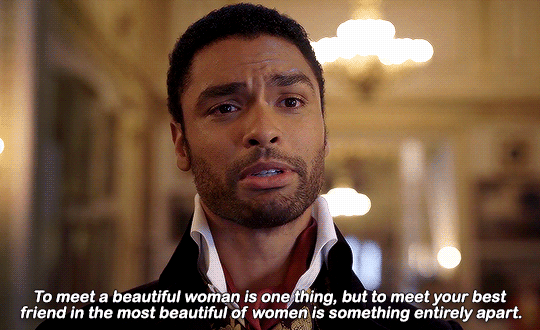
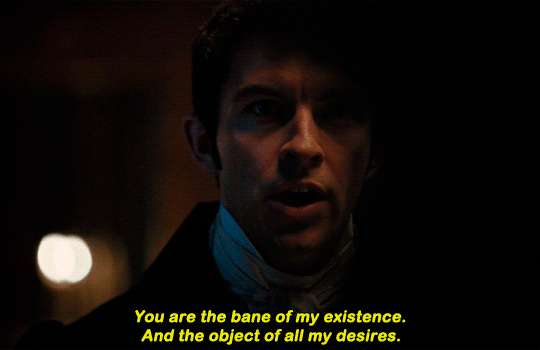
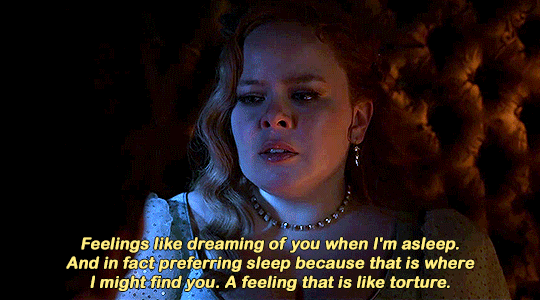

Edit: I beg your pardon George and Charlotte in their rightful place :)
#bridgerton#bridgerton spoilers#netflix#polin#simon and daphne#kanthony#kate sharma#anthony bridgerton#penelope featherington#penelope and colin#colin bridgerton#daphne bridgerton#simon basset#sucker for love#julia quinn#charlotte#queen charlotte#king george iii#george and Charlotte
3K notes
·
View notes
Text
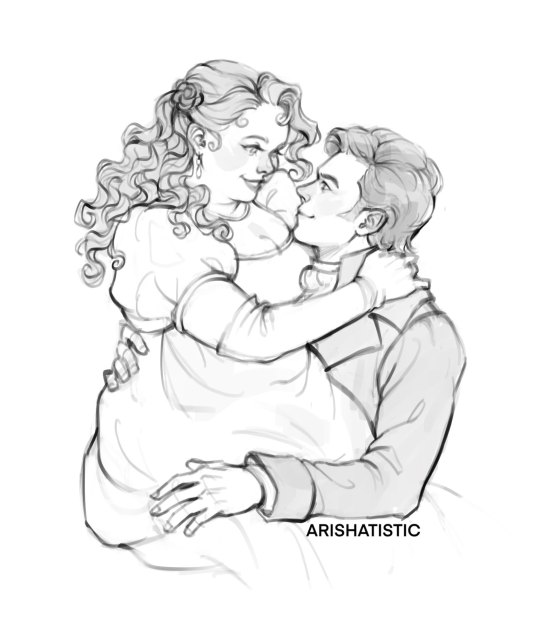
“Your servant, Mrs. Bridgerton. Always.”
Penelope and Colin in anticipation of Bridgerton Season 3!
#polin#bridgerton#bridgerton season 3#penelope featherington#colin bridgerton#penelope x colin#colin x penelope#bridgerton season three#bridgerton netflix#bridgerton fanart#romancing mister bridgerton#julia quinn#netflix
3K notes
·
View notes
Text
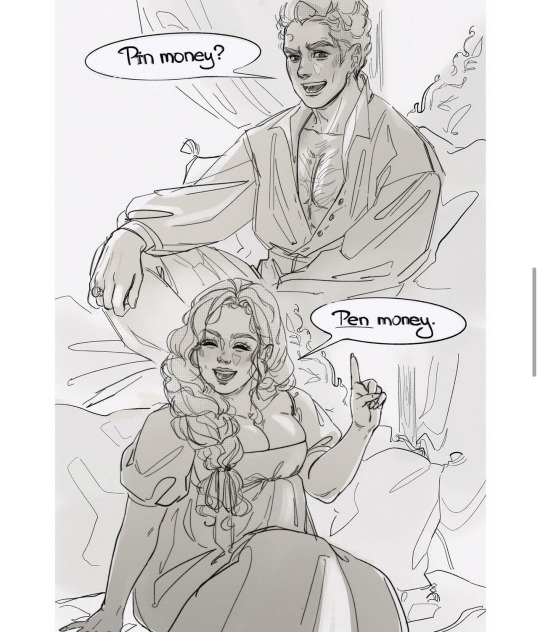

Romancing Mister Bridgerton - Julia Quinn
Artist: littimmm
#penelope featherington#colin bridgerton#polin#romancing mister bridgerton#lady whistledown#bridgerton#pen x colin#colin x penelope#julia quinn#bridgerton season 3#nicola coughlan#luke newton#bridgerton art#bridgerton fanart#book art
2K notes
·
View notes
Text
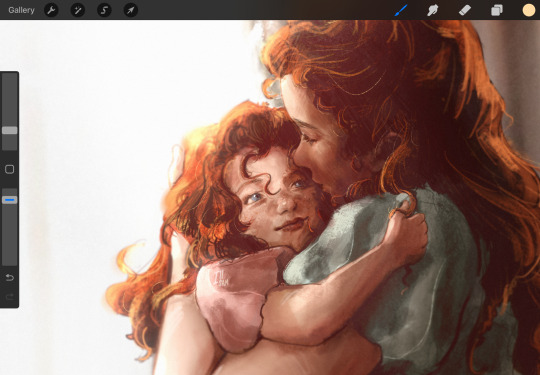

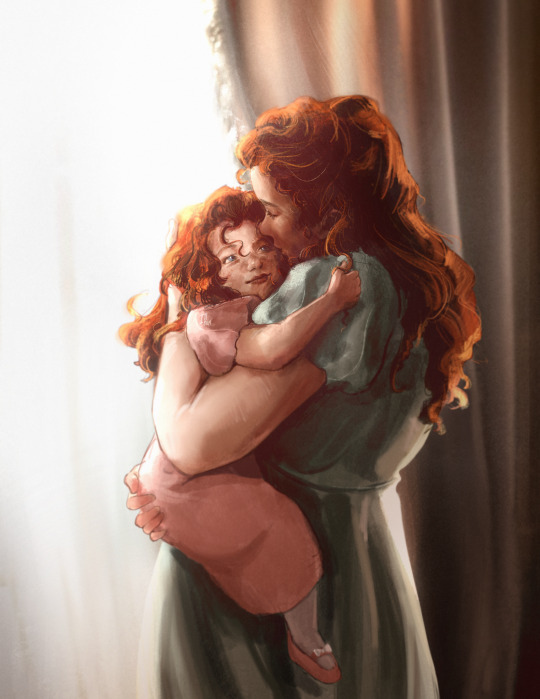
baby agatha with her mama this time 🫶 (of course i have to make a penelope version who do you think i am?!)
#digital art#fanart#art#illustration#digital painting#procreate#artists on tumblr#agatha bridgerton#penelope featherington#colin bridgerton#polin#bridgerton season 3#bridgerton#bridgerton fanart#bridgerton s3#anthony bridgerton#kate sharma#fluff#julia quinn#penelope x colin#luke newton#nicola coughlan
2K notes
·
View notes
Text
Kate Bridgerton, I see you and respect your decision to extend your honeymoon with your hottie, simp husband. Like. I get it girl. But also. 𝘎𝘦𝘵 𝘪𝘵 𝘨𝘪𝘳𝘭.
#kate bridgerton#kate sharma#anthony bridgerton#kathony#kanthony#jonathan bailey#simone ashley#polin#penelope featherington#colin bridgerton#bridgerton spoilers#bridgerton#bridgerton season 3#bridgerton s3#julia quinn#romancing mister bridgerton#nicola coughlan#luke newton
1K notes
·
View notes
Text

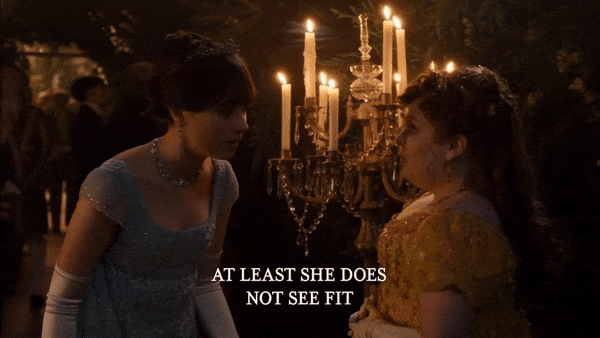

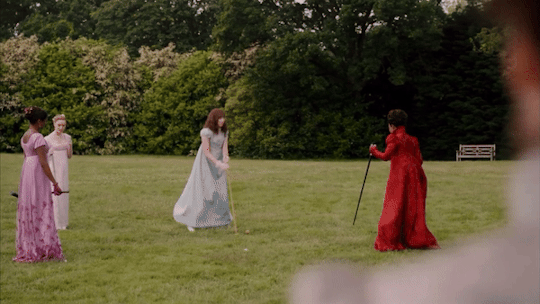


CLAUDIA JESSIE as ELOISE BRIDGERTON
Bridgerton Season 2 — Bloopers
#😂😂😂😂#😍😍😍#the fake swoon in the first gif I can’t she’s too funny#I love her#she is bae#best bridgerton girl#eloise bridgerton#claudia jessie#bridgerton#bridgerton season 2#bridgerton s2#bridgerton season two#eloise#bridgerton netflix#julia quinn#shonda rhimes#shondaland#netflix#bridgerton bloopers#bridgerton bts#behind the scenes#bridgerton behind the scenes#violet bridgerton#benedict bridgerton#penelope featherington#lady danbury#simone ashley#philoise
2K notes
·
View notes
Text

guys im sorry but this is literally so funny!!! let's have the comedy part of romcom in addition to the longing stares <3
#bridgertonedit#polinedit#perioddramaedit#nicola coughlan#luke newton#bridgerton#netflixedit#julia quinn#bridgerton spoilers#polin#penelope featherington#colin bridgerton
2K notes
·
View notes
Text
English speakers have a set of [+ male] predicates for penile activities and what can be done to the penis: father, sire, beget, impregnate, penetrate, ejaculate, castrate, fertilize, deflower, inseminate and emasculate. There is no semantically symmetrical set of predicates for activities performed by or to the clitoris, labia majora or minora. Male perceptions and activities dominate the sex-marked predicates, which is, perhaps, the structural reason they are a fixed set, closed to women. The semantic structure reflects social reality: men take over whatever they like from the women's sphere with impunity. Indeed, they think of such acquisitiveness as their right and prerogative.
Shut out of agency in sex-marked predicates, women must rely on nouns and multisyllabic phrases to describe our experiences. What we have are nominals—clitoridectomy, infibulation, excision, and hysterectomy (since women's genitalia are categorized not as sexual parts of our anatomy but as reproductive "equipment," "plumbing")—or phrases in which the predicate is one of the helping or semantically empty verbs: to get/be aroused, to get/ be excited, to get/be hot, to have an orgasm. But none of those phrases is uniquely [- male]. If anything, they are sex-neutral, and both sexes use them. I would suggest, however, that as women have acknowledged they have sexual feelings and decided they want to talk about them, they have borrowed already available, formerly [+ male] terms. Thus, lacking a female-specific word like ejaculate, women have begun to use the noun orgasm as a verb: "I orgasmed all night."
In fact, a woman's sexual experience and feelings are nonexistent if we believe that the English vocabulary describes reality, because there are no [- male] words for sexuality. There are hundreds of words and phrases for male sexuality and what men do to women; the slang vocabulary of English reflects the male's obsession with his penis and its "'personality." Men even name their penises and talk about them as though they lead an independent existence. Men's obsession with their penises and its structural centrality in PUD is a given, rarely worthy of comment. Men are "supposed" to be obsessed with fucking women. (Men who aren't are deviant.) One can say of a woman, "She's oversexed," but we rarely hear that adjective used to describe a man. Instead, the categorial dichotomy—men have the predicates, women get nouns—again applies. There is a predicate for describing the male activity of fucking lots of women, "womanize," and a noun, "womanizer." A woman obsessed with letting men fuck her is a "nymphomaniac," not a "*mannizer." There is no such [- male] agentive noun; it would be a semantic contradiction because PUD assumes that agency is inherently [+ male]. Womanizer and nymphomaniac both express negative judgments, as Gary Hart, Jimmy Bakker, and Jimmy Swaggert could testify, but unless a womanizing man lives in the public arena, his "weakness" is more likely to be overlooked or tacitly condoned. A woman, however, once branded as a "nymphomaniac," is condemned to a more marginal life than most heterosexuals.
To the best of my knowledge, women have not shown the exaggerated regard for their clitorises men give to their penises. When women talk about their genitals, they say "'down there." Whereas men's genitalia are objects, women's are described as a location. In contrast to the penile vocabulary [- male] words and phrases focus on the place where men stick their penises or the end result of heterosexual coitus for women, having babies. An exception to this is the verb menstruate, which is intransitive (there is no object) and requires a [- male] agent. Other female biological processes, however, can be talked about only as states, as nouns. Women "go through menopause," we "have a climacteric," even though menopause is a process that continues for years, sometimes a decade or more. And, to avoid using the one verb we do have, women have an extensive vocabulary of euphemisms: fall off the roof, be on the rag, Aunt Jane is visiting, red Herbie has come, to be unwell, have a period, be on the mattress, it's that time of the month, and have the monthlies. Women do not act; we have a function: reproduction. PUD describes our lives as nouns, nouns, and more nouns.
-Julia Penelope, Speaking Freely: Unlearning the Lies of the Fathers’ Tongues
58 notes
·
View notes
Text
At Bridgerton's tea time
Eloise: Colin, do you ever stop staring at your wife?
Colin *not taking his eyes off of Penelope*: And why wouldn’t I?
Eloise: Because it is making the rest of us feel like we’re unwilling chaperones in your romantic novel.
Colin: Then close the book, Eloise. You’re interrupting the plot.
#bridgerton#polin#polin bridgerton#julia quinn#incorrect polin quotes#incorrect bridgerton quotes#bridgerton incorrect quotes#colin my wife bridgerton#he's so silly#penelope bridgerton#colin bridgerton#luke newton#nicola coughlan
263 notes
·
View notes
Text
I love that they kept The Kiss. It was the moment in both the book and the show where Colin had a life epiphany while Penelope mentally prepared herself to let go of Colin forever.
The beauty of it is that when she thought she could be ready to resign herself to a life without him, she did the one thing that made him realize he could never let her go.
#polin#COLINS FACE#it reminded me of Tim after the chenford kiss lol#colin bridgerton#penelope featherington#bridgerton#Julia quinn
850 notes
·
View notes
Text
The series’s name may be “Bridgerton” but the real main character has always been Penelope Featherington i don’t care what y’all say.
#bridgerton#bridgerton season three#penelope featherington#nicola coughlan#colin bridgerton#penelope x colin#polin#daphne bridgerton#anthony bridgerton#eloise bridgerton#julia quinn#bridgerton books#benedict bridgerton#bridgerton x reader
639 notes
·
View notes
Text
I don't know who needs to hear it, but Julia Quinn doesn't pitch women against each other. Shondaland's writers do.
Daphne and Cressida never competed because of man - in fact, in the "The Duke and I" book it's actually one of Colin's friends who sees Daphne and Simon in the garden. Penelope and Cressida never competed for a man.
Kate and Edwina (and Mary) have one of the healthiest family relationships I've ever seen. There's no fights, and definitely no quarrel because of Anthony. Edwina is so happy for Kate and Anthony when they are forced to marry and always stays by her sister side as she never had real fealings for him. Not to mention that Kate and Pen became really good friends as both are wallflowers at the sideways of the ballrooms. Book Kate even confess she falls in love with Anthony when he stands up for Pen after Cressida's bullying.
Sophie becames friends with her stepsister Posy (who is treated by her mother similar to the way Portia treats Penelope). Posy even ends up living with the Bridgertons before marrying a vicar.
Lady Danbury is Penelope's friend and number one supporter. Polin names their first daughter - in the books - Agatha after her.
Pen and Eloise never fight (nor break their friendship) and Eloise is so proud of Penelope for being Lady Whistledown. Their friendship is so strong that Pen is the one to find out El's whereabouts when she runnaways to Phillip's house in her book. Eloise and Phillip's first daughter is named Penelope.
In the show, every female relationship is destroyed by some fight (most of the times related to a man) or doesn't exist at all. Pen and Kate barely meet or talk. Edwina is in love with Anthony. Mary puts to much pressure in Kate. Pen and Lady Danbury's friendiship was never explored... Now Rosamound (Sophie's stepsister) is supposed to be interest in Benedict when in the books her mother, Araminta, mentions once that she should go for a Bridgerton - most likely because they're a rich and influential family rather than a desire for her daughter to marry an actual Bridgerton).
But somehow, the only actual mean girl in Julia Quiss' books, Cressida Cowper, gets her actions justifyed because of her family situation . She get's to have a friend in Eloise and get's to share some of Pen's spotlight in the one that was supposed her season. Seems unfair, when even Marina - that we only know post mortem in the books - got a plot with unplaned pregnace; planed entrapment and lies*....

*This is not a critic to Marina's character, I am barely pointing what the show did to her in the list with everything else.
#julia quinn#bridgerton#bridgerton books#book lore i guess#the duke and i#daphne bridgerton#season 1#kate bridgerton#kate sharma#kate sheffield#edwina sharma#edwina sheffield#season 2#penelope featherington#anthony bridgerton#the vicount who loved me#cressida cowper#sophie beckett#sophie baek#an offer from a gentleman#polin#bridgerton season 3#romancing mister bridgerton#colin bridgerton#lady danbury#agatha danbury#eloise bridgerton#phillip crane#my commentary
256 notes
·
View notes
Text










NICOLA COUGHLAN as PENELOPE FEATHERINGTON in Bridgerton, Season 3
#bridgerton#bridgertonedit#dailybridgerton#bridgerton netflix#perioddramaedit#perioddramasource#weloveperioddrama#onlyperioddramas#period dramas#penelope featherington#penelope bridgerton#bridgerton season 3#bridgerton s3#julia quinn#nicola coughlan#mine
294 notes
·
View notes